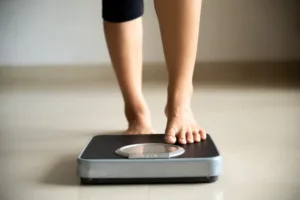Recently, if you’re looking for natural ways to lose weight, you might come across familiar advice: count your calories. But what exactly are calories? How does calorie counting work? What are its effects, and how can you get started?
If you want to learn more, check out this article.
- Healthy Eats: High-Volume, Low-Cal Foods
- Benefits of Eating Nuts on Health
- How to Lose Weight While Eating More Food
In order to perform various activities, our body needs to metabolize the food we eat into energy. This can be compared to a car that needs to burn fuel to operate.
The process of converting food into energy in the body is known as metabolism. When we are young, our metabolic rate is usually high, allowing us to eat almost anything without gaining weight. However, as we age, our metabolism tends to slow down gradually, and the energy from the food we consume is not used up as efficiently. This results in the excess energy being stored as fat, leading to weight gain in areas such as the torso, belly, legs, and hips. This can be quite uncomfortable and may require a change in diet and lifestyle. So, even if you were able to eat the same food without gaining weight before, it’s possible that age-related changes in metabolism are now causing you to accumulate fat in unwanted areas.

Each day, the amount of calories burned for energy varies from person to person. On average, men require 1,800-2,500 kcal per day for energy, while women require 1,500-2,000 kcal per day. This is known as the Basal Metabolic Rate, which represents the body’s basic energy metabolism.
Understanding Calories: What Are They and Why Are They Important for Nutrition and Weight Management
A calorie is a unit of energy. Specifically, one calorie is the amount of heat needed to raise the temperature of 1 gram of water by 1 °C. The energy obtained from food is measured in kilocalories. To be precise, our body needs 25 kilocalories per day per kilogram of body weight to raise the temperature by 1 degree Celsius. For instance, an individual with an average weight of 50 kilograms requires a minimum of approximately 1,250 kilocalories of energy per day. However, due to the various physical activities in daily life, such as climbing stairs, running, exercising, sitting, and working, additional energy is needed. Therefore, on average, individuals require approximately 2,000 kilocalories per day.
How much energy needs to be burned to reduce the weight by 1 kg?
To lose 1 kg of weight, the body must burn approximately 7,700 kilocalories of energy, which means that we need to consume fewer calories. The body will utilize its energy reserves to meet the demand, leading to a reduction in body weight. Conversely, if we eat more than our body needs, the excess energy (7,700 kilocalories) will be stored as fat, resulting in an increase in body weight by 1 kg.

Assuming a daily intake of 2,200 kilocalories, to lose 1 kg per week (or 7,700 kilocalories), we need to reduce our daily intake by an average of 1,100 kilocalories. This can result in a weight loss of up to 7,700 kilocalories over a period of 7 days. However, it is essential to maintain discipline in controlling our food intake to manage our weight effectively.
Which Foods Should You Eat?
Breakfast is considered the most important meal in weight control as it helps to boost the metabolic system, making it more efficient. It is also beneficial for those who aim to maintain the weight they have lost, making it less likely for them to regain weight. To prevent weight gain, it is recommended to avoid high-fat foods, such as stew, porridge, water dumplings, and fried noodles, and instead opt for low-fat options like fresh milk, soy milk, yogurt, fruits, and freshly squeezed juice. It is also advised to limit the intake of tea, coffee, bread, cookies, and donuts.
If you want to enjoy your favorite dishes during meals, you can still do so, but it is important to control the portion sizes and not overeat. To compensate for any excess calories consumed, it is recommended to increase physical activity or reduce the amount of food during the next meal.
It is important to note that you should never consume fewer than 1,200 calories per day if you are a woman or 1,500 calories per day if you are a man. Consuming fewer than these amounts can be dangerous and can lead to nutrient deficiencies and other health problems.
Conclusion
In conclusion, creating a calorie deficit is an essential part of weight loss. By determining your BMR, TDEE, and calorie deficit, you can create a plan to achieve your weight loss goals. Remember to aim for a safe and sustainable rate of weight loss and never consume fewer calories than recommended by a healthcare professional.


